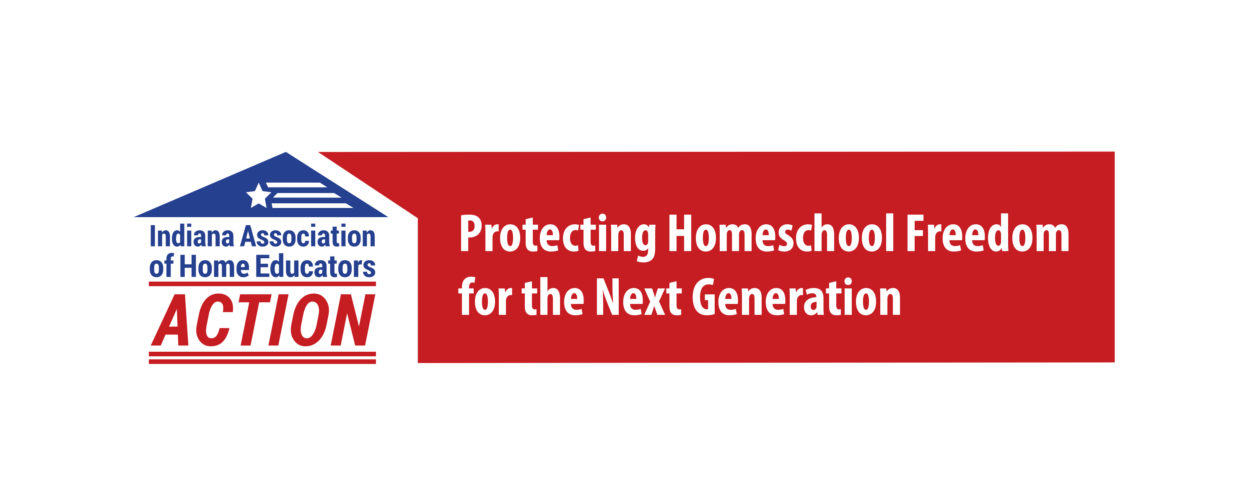Kindergarten isn’t mandatory in Indiana, but almost all children in Indiana already begin kindergarten at age 5. It is so common to start school at age 5 that most people assume that kindergarten is mandatory when a child is eligible.
Indiana educators are now pushing to lower the compulsory school age to 5. (It’s also being called “mandatory kindergarten,” but that’s a bit of a misnomer because most children who do not enter school at age 5 do not skip kindergarten; they just start kindergarten at a later age).
Currently, children in Indiana must begin school at age 7. The compulsory school age was set at age 7 for a reason, and lowering it now will not result in any educational improvement. Right now, parents can decide if their under-age-7 children are ready for school. If the compulsory school age is lowered, parents will no longer have that right.
“To a man with a hammer, everything looks like a nail.” – Mark Twain
You’ve probably heard variations of the above quote. I was reminded of it again and again during the years I was a public-school teacher. The quote refers to something that’s also called the law of the instrument. This truism states that there is a natural human tendency to be over-dependent on their narrow skill-sets and resources. In other words, if you’re used to using a particular tool, you’ll use it to solve any problem, even if another solution would be much better. That’s what happens in education time after time. 
The hammer of the public-school system is wielded as the sole tool of education.
That hammer has been in use for a hundred years, and for a while the people even largely forgot that there was any other way to become educated.
Comments and Actions Reflect a Strong Bias Against Parents and Parental Rights
Proponents of lowering the compulsory school age have a tool – the public-school system – and they view it as the only correct way to educate a child. They act shocked (“appalled”) that children are not already required to attend a brick-and-mortar school at age 5. Some of the comments made by those pushing this bill are disturbingly anti-parent.
No evidence is offered for placing a child in a structured educational environment by the time they’re 5. As I will detail later, on the balance studies do not show a need for structured, formal education at age 5, and in fact there are many studies showing that structure can be harmful in early childhood development.
Exactly what do proponents of lowering the compulsory school age view as a “structured educational environment?” I doubt most home school kindergarten environments would qualify in the eyes of those who wield the hammer of the institution of public school. Many homeschooling parents make a distinction between “homeschool” and “school at home,” and intentionally avoid the latter.
Despite thousands of years of homeschool tradition, and hundreds in our nation, parents are no longer trusted with their natural ability to educate their own child – even parents of 4-to-5-year-old children. Comments from proponents of lowering the compulsory school age reveal their ignorance, dismissal, or contempt for the parent’s right and ability to educate their child.
It turns out that the evidence supports thousands of years of tradition – children who are with their parents and caregivers are better off.
Who is in the best position to decide their child’s educational pathway? The parent.
But, against best evidence and tradition, the proponents of lowering the compulsory school age are ready to step in and force parents to put their child in school at a lower age. If your child’s educational model doesn’t fit into their view of what is correct, they’re willing to hammer your child down into place by forcing earlier compulsory schooling.
First pre-K was pushed. Proponents of lowering the compulsory school age use pre-K as an excuse to push for structured kindergarten, mandatory at age 5.
How long will it be until they are also forcing your children into whatever it is they deem a “structured environment?”
Shouldn’t we all be asking what’s really best for the child?
Are proponents of lowering the compulsory school age operating with your child’s best interest in mind, or are they pushing their own preconceived agenda? Who do you think is an in a better place to decide what a 5-year-old child is ready for – the child’s own parent, or a state law that applies universally to all children?
Is it better, on average, to begin formal school at an older or younger age? There are studies that support both sides of the debate, but the consensus is that there is a small benefit to entering school at an older age.
This large, well-designed study is contrary to the agenda being pushed by proponents of lowering the compulsory school age. 
Proponents of lowering the compulsory school age should have a responsibility to properly demonstrate a cause-and-effect relationship between a lowered compulsory school age and long-term benefits for children into adulthood.[i]
They have not shown this evidence. So far, as stated above, the sum of the research shows the opposite: A lowered compulsory school age does not result in long-term benefits.
Why are educators so keen to force this on the people of Indiana without evidence to show that it will improve education?
The Problem is Vastly Overstated
There are parents who decide that it’s best to delay a child’s entry into public school. This happens for many reasons.
It’s wrong to automatically assume that a child who doesn’t attend public-school kindergarten when eligible will be “behind” if the child is subsequently placed into public school. There are many reasons why a concerned parent might choose alternative education, or to delay education altogether for a young child.
Some parents simply place the child in kindergarten a year later than the child is eligible. Most of those children would be placed in kindergarten, not first grade, as the idea behind delaying kindergarten was to allow a child to catch up to peers.
Some children attend private school for kindergarten. Private school tuition costs could be manageable for kindergarten, but once the price increases steeply for first grade, it becomes unaffordable for more families.
Some children are homeschooled for kindergarten.
Parents choose these options for many reasons, but part of it is in response to the changing nature of kindergarten. Parents are doing what they can do fix the problems that the education system is creating by forcing longer days and tougher curriculum on five-year-old children who are not all developmentally ready.
No one knows how many parents are choosing the above options, or which options they’re choosing. Those who want to lower the compulsory school age have tossed out numbers from 118 to 7000. What is the real number? Common sense, history, and the fact that the overwhelming majority of Hoosiers (even lawmakers!) are surprised to hear that the compulsory school age isn’t already 5 tell us that the number of children is probably very small.
What to Do?
First, lawmakers need to understand that miracles do not accompany increased schooling.
I don’t think anyone is arguing against the fact that public schools are in decline. We’re all watching it happen.
Do we want more of a bad thing?
No, and it shows. Parents are increasingly demanding alternatives. We don’t want to use the hammer. We have better tools.
Our state has public schools to educate those children whose parents are unwilling or unable to do so. The state’s primary concern should be providing the education it is authorized to provide, and doing it well.
“Having expected miracles from increased schooling, the public has no choice but to live with the limitations of education. … [I]n seeking to free rather than imprison the child, promote growth rather than stunt it, and foster individual welfare rather than harm it, not only the quality of schools but also the quality of the society in which young people are growing up must be improved.”[ii]
Lowering the compulsory school age is a mistake. The state should focus its efforts on doing what it can to fix our public schools.
[i] Ray, Brian D. (2009). Is there any solid evidence for expanding compulsory school age? Salem, OR: National Home Education Research Institute.
[ii] https://files.eric.ed.gov/fulltext/ED119389.pdf Katz, Michael S., A History of Compulsory Education Laws. Fastback Series, No. 75. Bicentennial Series. Phi Delta Kappa, Bloomington, Ind. 1976. Available at https://files.eric.ed.gov/fulltext/ED119389.pdf, last accessed December 10, 2017.
Lisa Yankey is a happy homeschooling mom of three, but she never expected to homeschool. Teaching runs in her blood – she is a former public school teacher, and her mother, father, and brother are all former public school teachers. During her childhood and as a teacher herself, she recognized many issues in public school. She went to law school at night in a long-term plan to help improve public schools. She used to believe that every child could receive a good and appropriate education from public school. She realized the error of this belief when she watched her own child suffering in public school. She began homeschooling shortly after her oldest child had a disastrous start to public school first grade, and she has never looked back.
Lisa serves as a member of the IAHE Action Government Affairs team. She kept her career as a part-time attorney and works for herself as a sole practitioner, with a practice area in immigration law. She is known particularly for her representation of victims of domestic abuse. She continues teaching adults as a speaker on immigration law at continuing legal education events for fellow lawyers. Lisa resides in Noblesville, Indiana (Hamilton County). with her husband, three children, two dogs, and a cat.
IAHE ACTION is a 501c4 organization. Donations are not tax deductible. It is funded by our generous donors.


Well said! Most people just enroll their child automatically at 5, so this law is not targeting them. It is focused on those of us who want to make decisions in the best interest of our individual children. Requiring preschool at age 3 has been the goal all along, even if it is not the best thing for the child. It has been discussed and promoted at national and state levels for more than 30 years.
The education establishment should have the burden of convincing the parents (and all the tax payers) that their services are worthy. The ought no be the judge and master of the parents.
Does IAHE concede too much in this article? Why should home-schoolers offer any argument other than natural rights and natural freedom against unwanted government intrusion into their lives. If natural rights and natural freedom suffice to invalidate this government intrusion into the natural family, then why is it incumbent upon IAHE to argue the merits of school at any given age?
What’s best for the child? Maybe what is best for the child is not a question of mandatory school age or mandatory school anything at all. Maybe limited government subordinated to God given natural rights is what is best for the child.
“It is better to tolerate the rare instance of a parent refusing to let his child be educated, than to shock the common feelings and ideas by the forcible asportation and education of the infant against the will of the father.” – Thomas Jefferson https://tinyurl.com/y8ys6pfs
The reason IAHE is speaking out on this issue is that it affects our Home Education rights, as well. If the law says that all Indiana child must start formal training at age 5, that would also include our homeschooled children. And if the law then dictates that children enter preschool at age 3, that would make it mandatory pre-K for kids at home too… We need to see where this train of thought ends… Look at children in England and Germany, who have no option of being educated at home! Why? Because the government doesn’t trust the parents with their own children. This is no different! Many thanks to IAHE for continuing to spread out on this and many other issues! You are essential to all of our educational freedoms here, in Indiana!!!
The education from the public school system is not meeting our children’s educational needs. Until we overhaul the “mandatory testing” system as well as how the funding is distributed, our children’s education will continue to decline.
Currently schools must comply with the mandatory tests in order to receive federal/state funding. The schools need this funding to operate. This mandatory testing dictates what the teachers are able to teach the students. The curriculum is now based on broad mandatory test scores. Thus, hindering our teachers to teach the children this curriculum of how to pass the mandatory tests.
What is not being considered is that we are a diverse nation with individual demographics. The current big government run educational system is not working. Each local school district should be able to receive fair funding from both the federal and state governments. The curriculum and funding should be controlled by the local districts who know first hand what the children’s academic and financial needs are! We are a unique country. Americans very vastly from region to region, city to city. The education of our children will once again improve if we return to operating on the local level. America is not and will never be a “one size fits all” country. Let’s stop this nonsense of big government thinking they know our children and how to operate their education better than the teachers and parents who are there with them daily do!
Very well said Joy Ritenour!!!
I know my county offers and early headstart for 2 to and up. They even said they would tak my 1 year old baby.